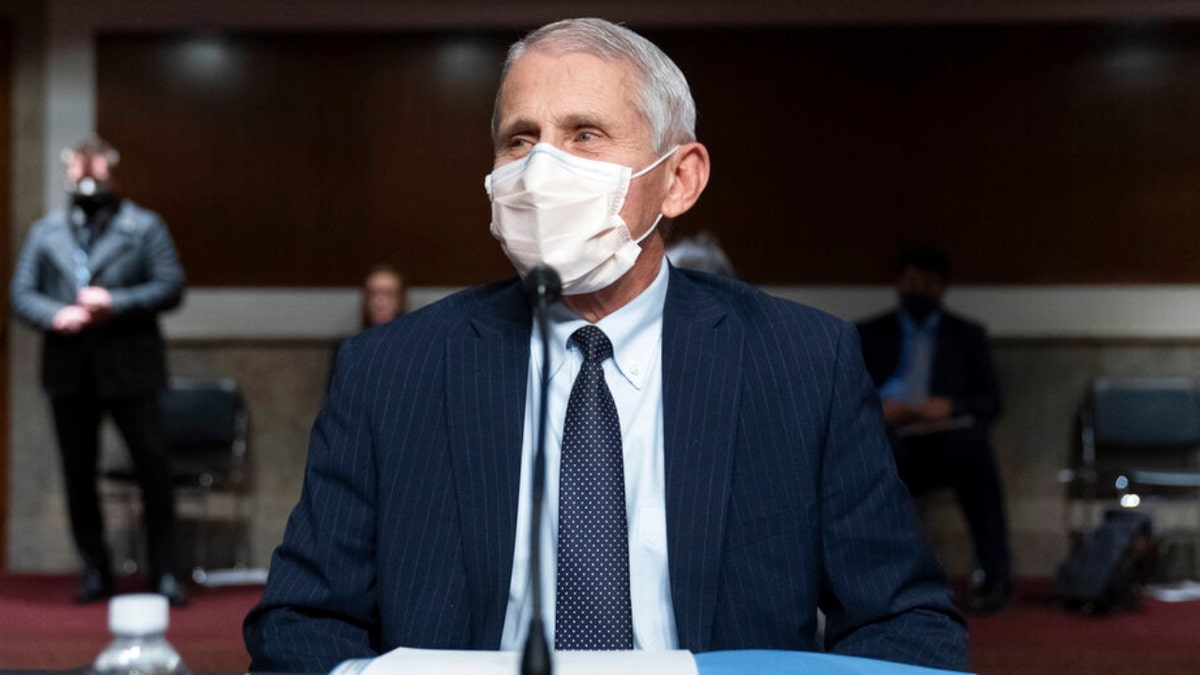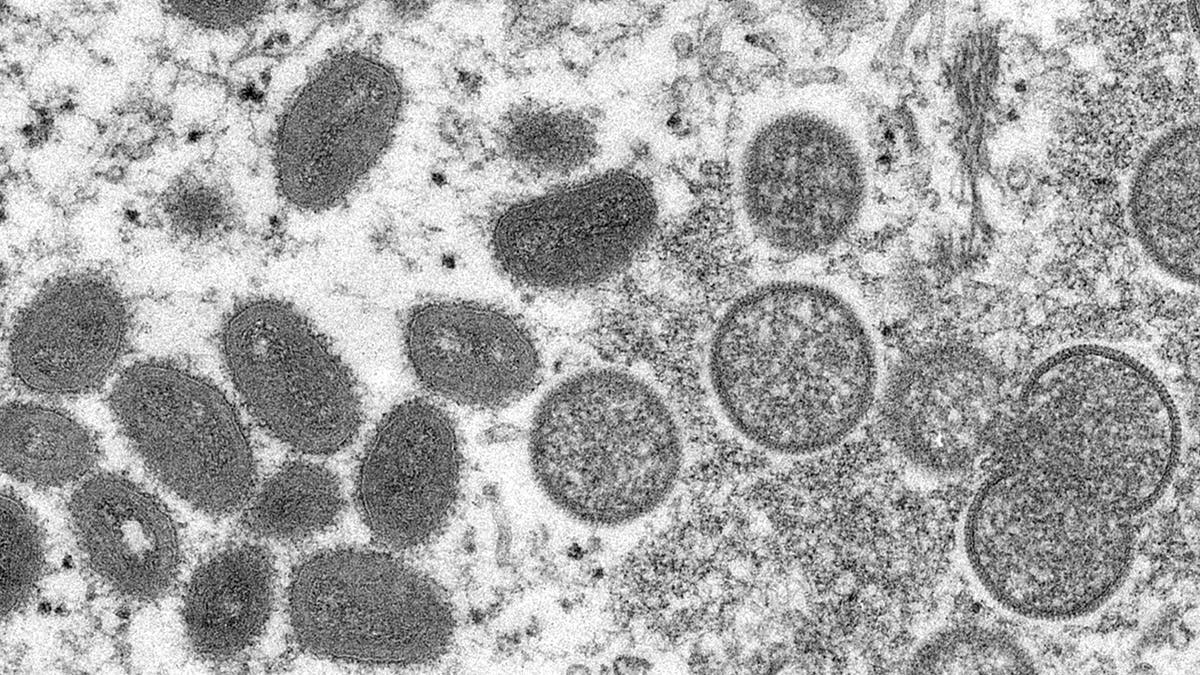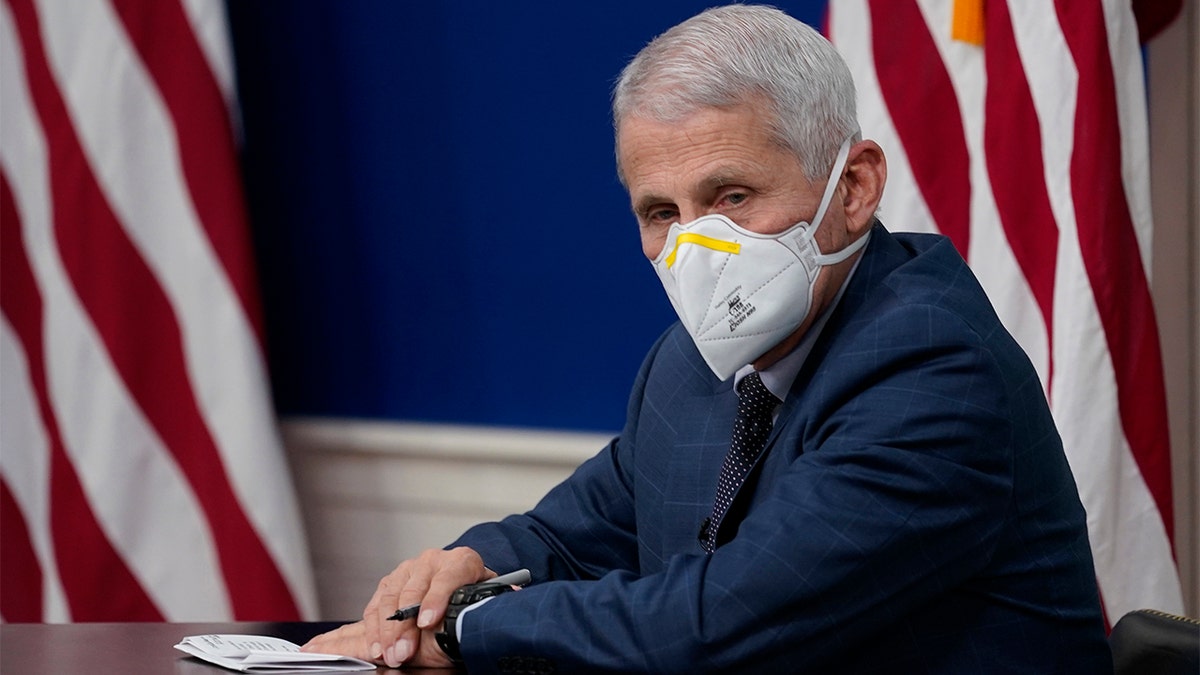Fox News Flash top headlines for August 26
Fox News Flash top headlines are here. Check out what's clicking on Foxnews.com.
Dr. Anthony Fauci, the White House chief medical adviser, warned against making assumptions regarding the global monkeypox outbreak, citing choices made during the early days of the HIV-AIDS epidemic.
In a piece written in the New England Journal of Medicine, Fauci and Dr. H. Clifford Lane wrote that the emerging epidemiologic pattern of the cases bears a "striking resemblance" to early cases of HIV/AIDS – including that most monkeypox cases in this outbreak have been detected among men who have sex with men.
The virus typically spreads from direct lesion-to-skin contact, and the researchers noted that evidence suggests transmission requires prolonged or repeated exposure.
People can also become infected through contact with infected clothing or bedsheets.

Dr. Anthony Fauci, director of the National Institute of Allergy and Infectious Diseases, takes his seat for a Senate Health, Education, Labor, and Pensions Committee hearing on Capitol Hill, Thursday, Nov. 4, 2021, in Washington, D.C. (AP Photo/Alex Brandon)
Notably, health officials have stressed that the virus is not considered to be a sexually transmitted infection, although men considered at high risk of the disease are recommended to reduce their number of sexual partners and refrain from group or anonymous sex.
During the HIV-AIDS pandemic, the pair noted that the microorganism causing the disease was unknown and, unlike today, no countermeasures like vaccines were available.
"Given how little we know about the epidemiologic characteristics of the current outbreak, it is prudent to heed an observation made during the first year of the HIV/AIDS pandemic: ‘… any assumption that it will remain restricted to a particular segment of our society is truly an assumption without a scientific basis.’ Thus, additional detailed epidemiologic and observational cohort studies, serosurveys and ongoing surveillance for new cases are of critical importance," Fauci and Lane, who serves as the NIAID Deputy Director for Clinical Research and Special Projects, urged. Fauci is leaving his position as White House chief medical adviser and NIAID director in December.

This 2003 electron microscope image made available by the U.S. Centers for Disease Control and Prevention shows mature, oval-shaped monkeypox virions, left, and spherical immature virions, right, obtained from a sample of human skin associated with the 2003 prairie dog outbreak. (Cynthia S. Goldsmith, Russell Regner/CDC via AP)
WILL MONKEYPOX BECOME AN 'ESTABLISHED STD'? WHY ONE INFECTIOUS DISEASE EXPERT THINKS SO
They said that the challenge going forward is to ensure efficient and equitable availability and distribution of countermeasures, as well as to conduct rigorous studies needed to define what the clinical efficacy may be, identify any potential safety concerns and guide proper utilization.
"Lessons learned during the responses to AIDS and COVID-19 should help us to marshal a more efficient and effective response to monkeypox, and the response to monkeypox should, in turn, help to inform our response to the inevitable next emerging or reemerging infectious disease of pandemic potential," the pair concluded.

Dr. Anthony Fauci, the top U.S. infectious disease expert, wears a face mask during the White House COVID-19 Response Team's regular call with the National Governors Association in the South Court Auditorium in the Eisenhower Executive Office Building on the White House Campus, Monday, Dec. 27, 2021, in Washington, D.C. (AP Photo/Carolyn Kaster)
According to data from the Centers for Disease Control and Prevention, there are nearly 17,000 confirmed cases of monkeypox and orthopoxvirus in the U.S. and 46,724 cases worldwide.
CLICK HERE TO GET THE FOX NEWS APP
The number of cases reported globally dropped 21% in the last week, according to the World Health Organization.
The Associated Press contributed to this report.











































